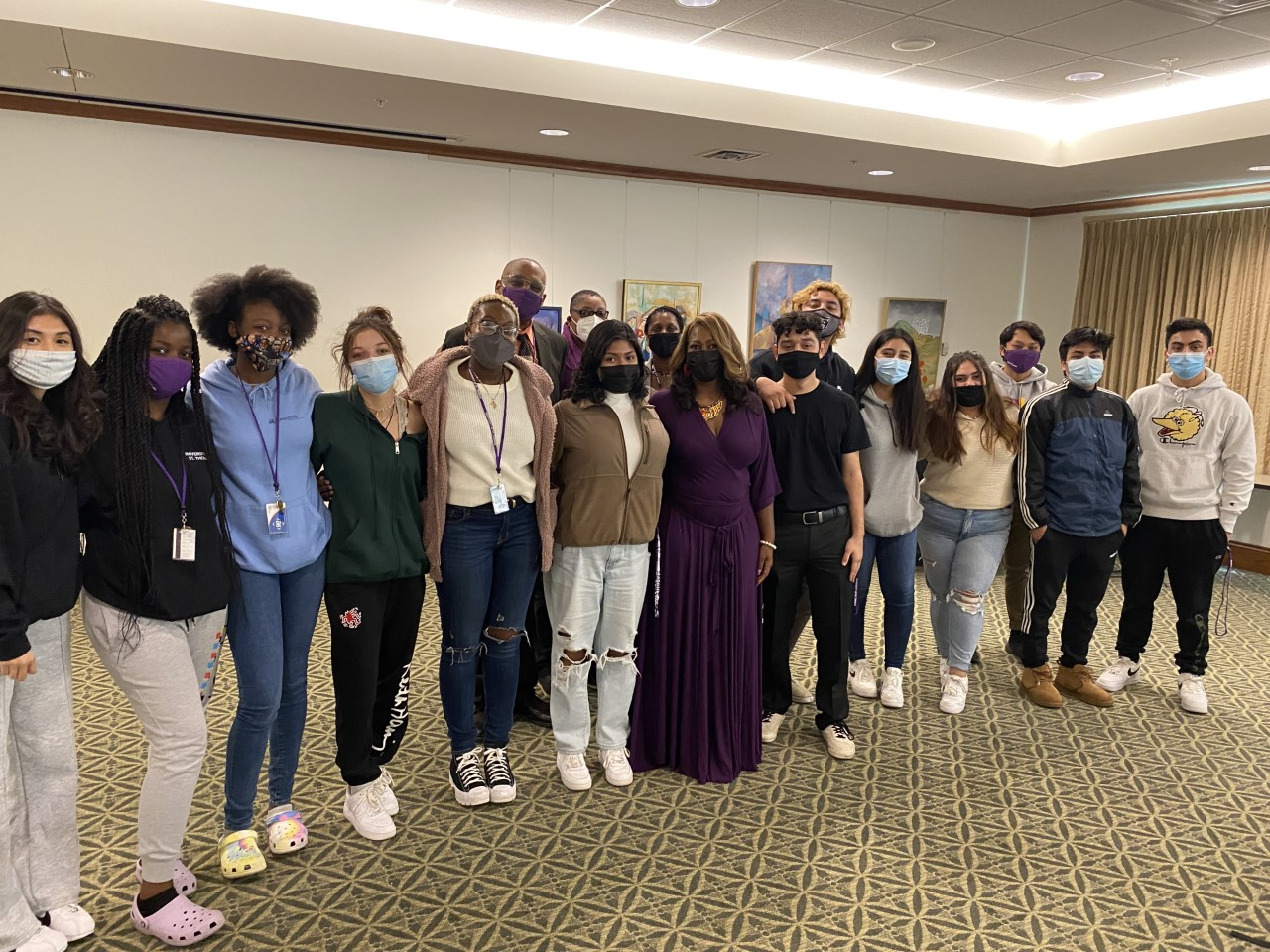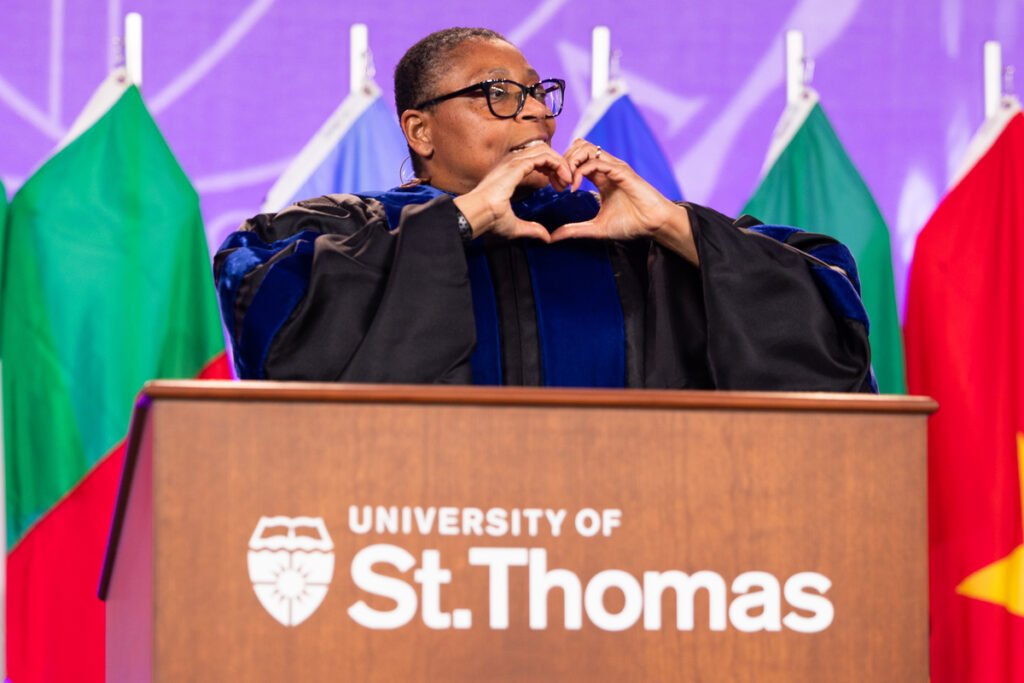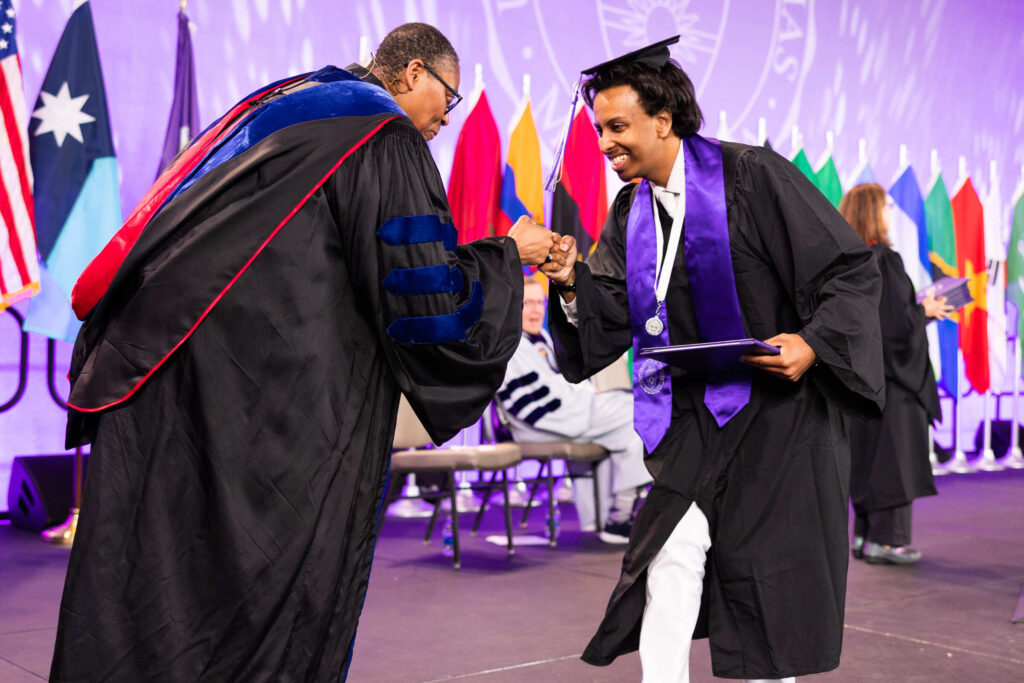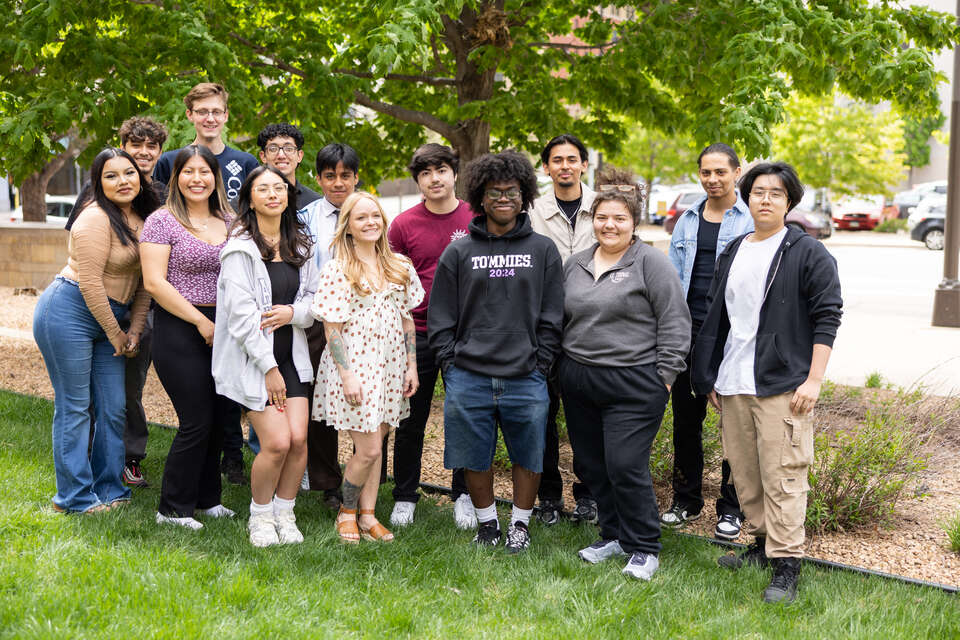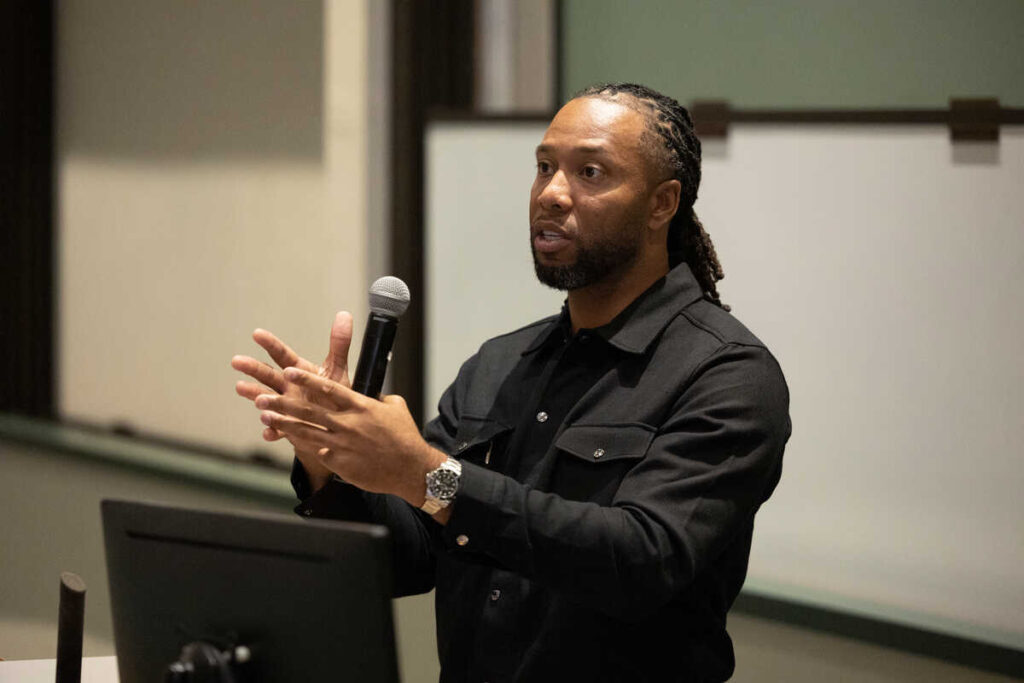LaTosha Brown is an advocate for people of color and their right to vote. As a national leader and co-founder of Black Voters Matter, she tours the country asking people to envision an America without racism. “A new America, a more inclusive, a more just, a more equitable America.”
During a recent stop in Minneapolis, the Atlanta resident and American Democracy Fellow in the Charles Warren Center at Harvard delivered her message to Dougherty Family College (DFC) scholars. She spoke about the intersection of race, voting rights and the importance of having vision and voice if there is to be equality in this nation.
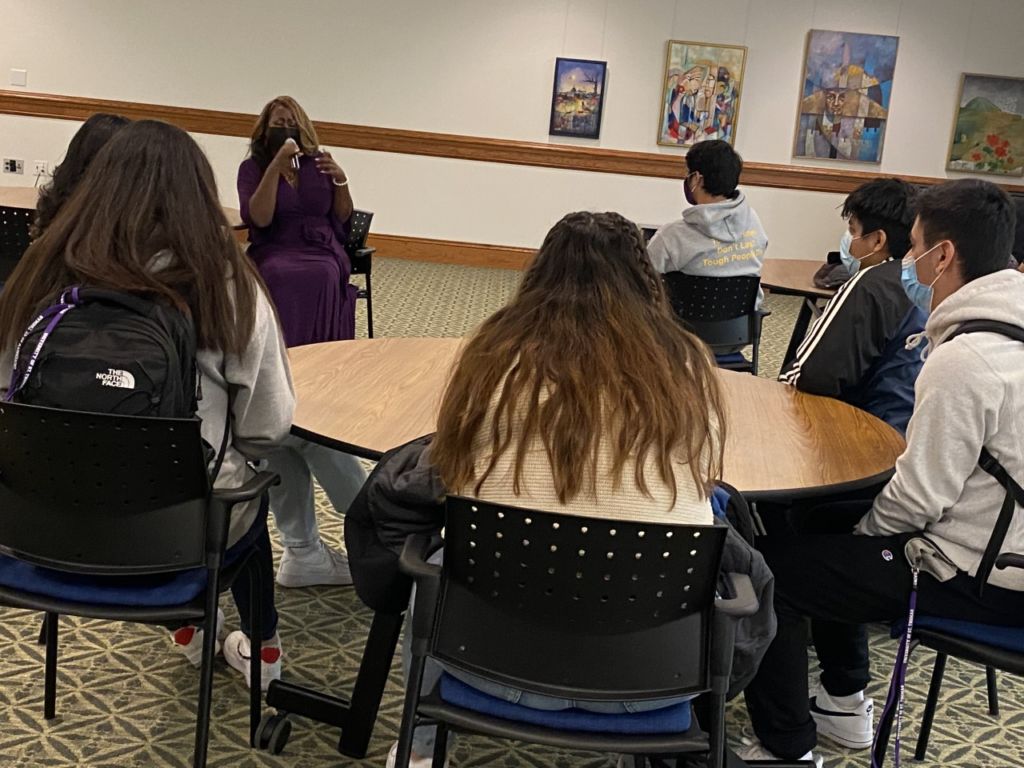 Tane Danger / Westminster Town Hall Forum
Tane Danger / Westminster Town Hall ForumHer talk is timely. After the 2020 elections, 45 states made changes to their voting laws; several of them made it even more difficult for disenfranchised people to vote, according to a USA Today analysis of 254 new laws. For example, in some states, the number of mail-in ballot drop boxes were reduced, some early voting opportunities were eliminated and new laws prohibited people from giving food and water to voters waiting in line to cast their ballot.
Although this issue appears to be about politics, Democrats versus Republicans, Brown said it is not exactly. “It is not a political crisis. It is a moral crisis.” She added, “We are dealing in a context that says if you are not a part of the power-making, the power-making strategy, or a person of power, it should be a little bit more difficult for you to vote.”
By silencing so many voices, valuable perspectives are not being allowed into the conversation about voting, she said. Additionally, she said it feeds stereotypes that Black, Indigenous and people of color should not vote or can’t change society through voting.
DFC scholar Jalyn Hall said she learned several lessons from Brown’s talk when it comes to the goal of those who favor voter suppression.
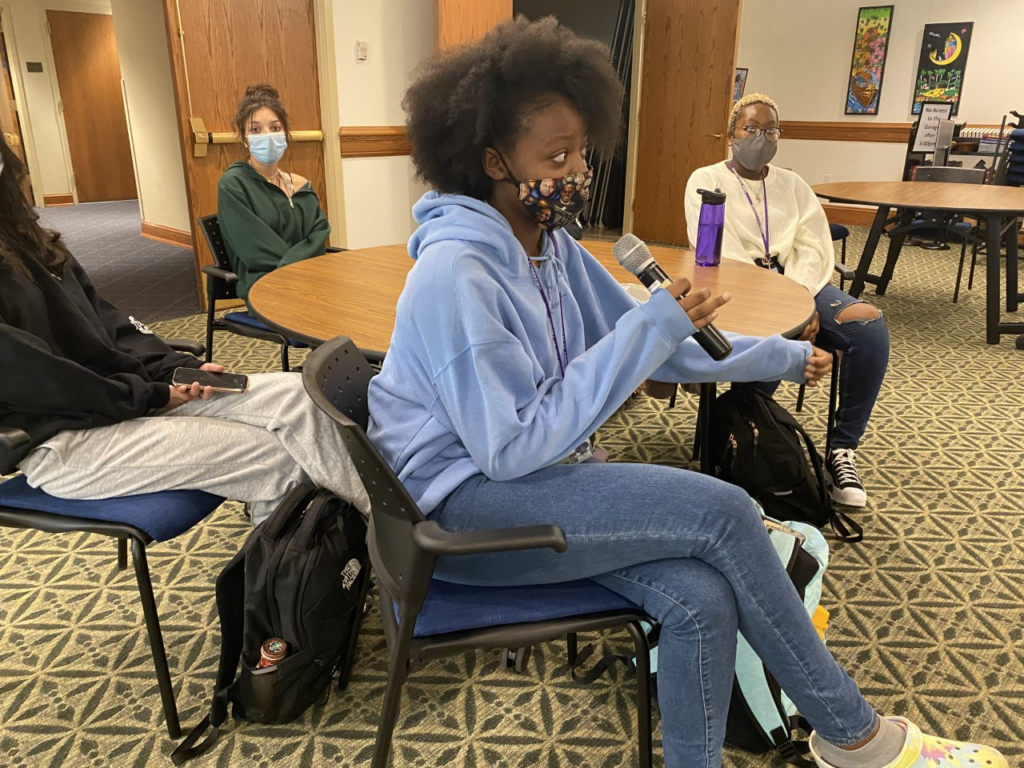
“LaTosha Brown taught me that the voting system wasn’t designed for Black and brown people. My vote was meant to be suppressed and disregarded. But LaTosha Brown also taught me something else. She taught me that my opinion matters, my voice matters, my identity matters, my spirit matters and, more specifically, my vote matters.”
Hall added, “People of color must mold the system to include them too; no more will we be suppressed and disregarded. We are here.”
Another DFC scholar, Marielena Chacon-Pacheco, said, “Ms. Brown is a very inspirational speaker who is letting the younger generations know that our voice matters and that we can make change happen. The hope she has for the future generation and a better America despite the hardships we are facing also gives me hope for the change we can make.”
These scholars said they came in with an open mind and left Brown’s talk with a new perspective on the U.S. voting system.
Not only were DFC Scholars moved by Brown’s talk, but so were DFC faculty.
“I was impressed with the ways Ms. Brown connected with our students,” said English Professor Dr. Louis Porter. “Her passion and energy around social justice issues really came through, both during her address and afterward, when she met with Dougherty Family College scholars. Brown talked about what she called the ‘V Strategy,’ which includes vision, voice, victory, values and vote. She stressed the importance of voting, saying that doing so can be important to our very survival. Brown added that doing research, getting information from others and organizing in the community are ways people can increase the power of voting.”
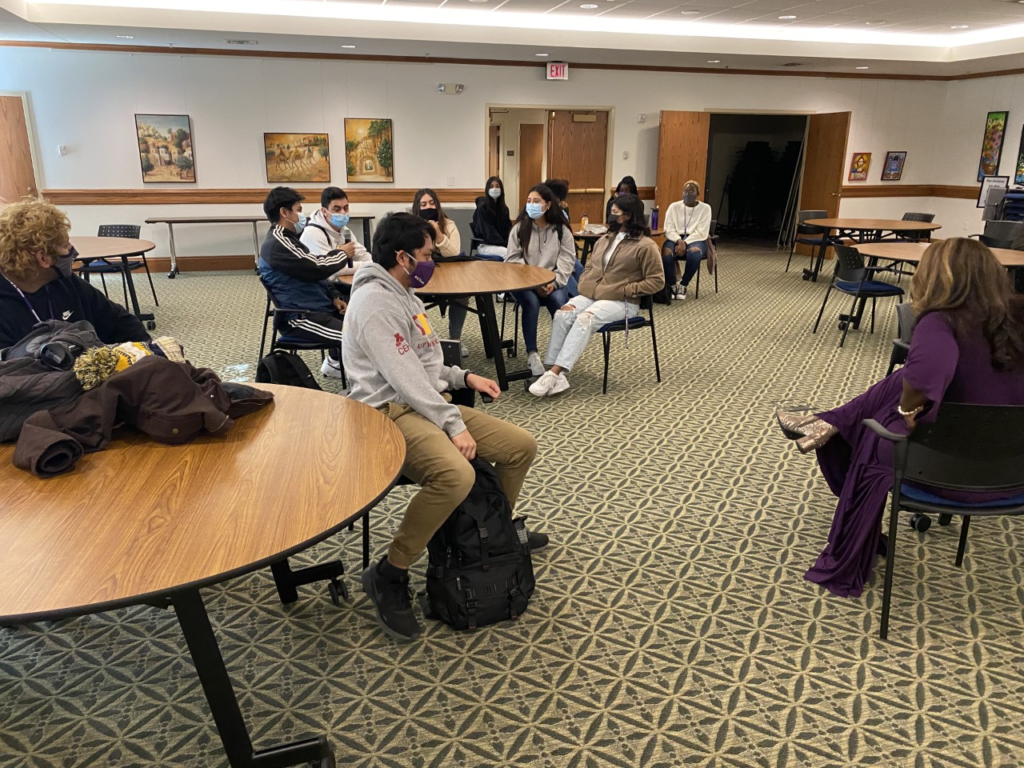
DFC scholars had a private conversation with activist LaTosha Brown after her talk at the Westminster Town Hall Forum. Tane Danger / Westminster Town Hall Forum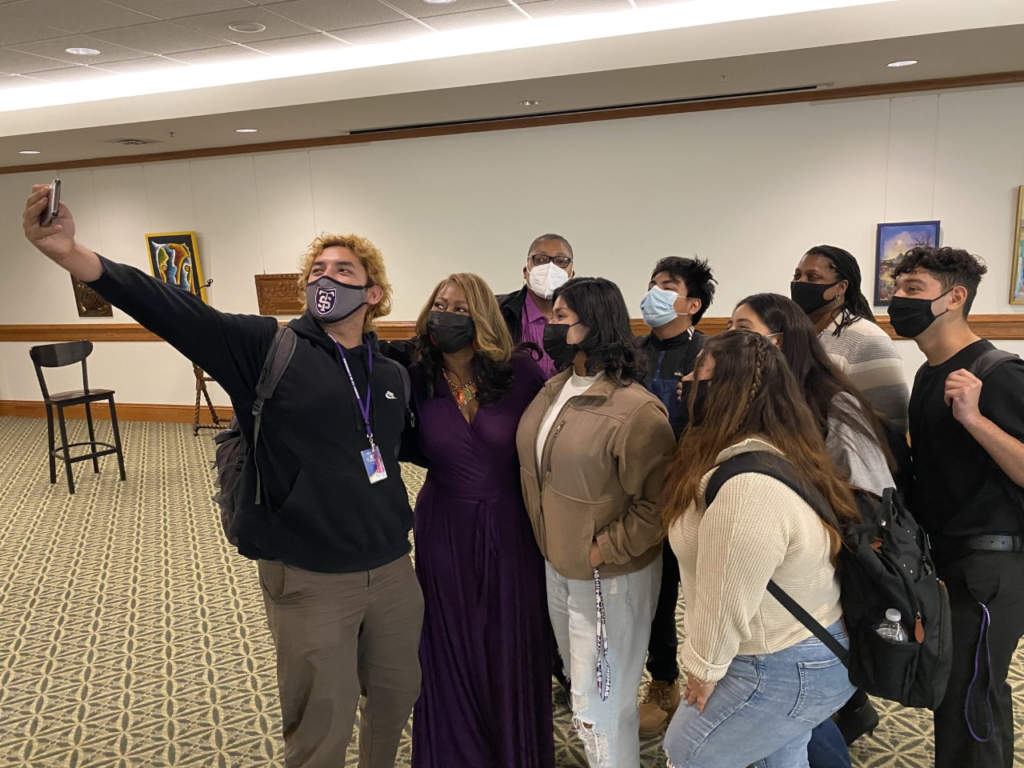
Kairo Cardenas Lazos, a first-year DFC scholar, takes a selfie with DFC participants for LaTosha Brown's talk. Tane Danger / Westminster Town Hall Forum
